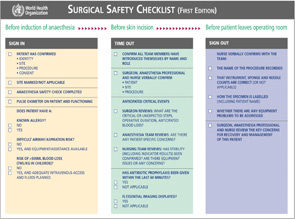Oversights can lead to harm, but some measures are overkill


Oversights can lead to harm, but some measures are overkill
Is high-surgeon volume in thyroid surgery associated with improved surgical efficiency and 30-day outcomes, and lower hospital utilization? BOTTOM LINE High-volume thyroid surgeons are associated with improved patient safety and […]

Being forthright about missteps, adverse events can help physicians create a safer healthcare system without increasing their risk of litigation
Four tips for setting up an adverse-event reporting program for the solo or small-group practitioner
Four tips for improving safety programs in hospitals.


Doctors Rima and Robert DeFatta, married otolaryngologists who work at Sacred Heart Hospital in Eau Claire, Wisconsin, spend about an hour each day dealing with insurance-related hassles. About 20 percent of their patients are un- or underinsured, so the two physicians spend time dashing off letters to insurance companies, re-jiggering treatment plans and helping patients access available resources. Recently, Rima DeFatta, MD, had to figure out how to diagnose a patient who presented with symptoms that suggested possible neurologic involvement.

The idea of reusing single-use devices may bring to mind the recent news of a Las Vegas urologist who was investigated in March for supposedly resuing single-use devices. As the Las Vegas Review-Journal reports, Dr. Michael Kaplan is accussed of reusing, but not not decontaminating, endocavity needle guides. While Dr. Kaplan’s specific case may be unique, the idea of reprocessing single-use devices is not.
I read with great interest the article published in the December 2010 issue of ENT Today, “Safety Net: With violence on the rise, otolaryngologists implement prevention strategies”. Physician safety in the workplace is still largely ignored and your article serves to further awareness of the problem. I thank you for providing this forum.